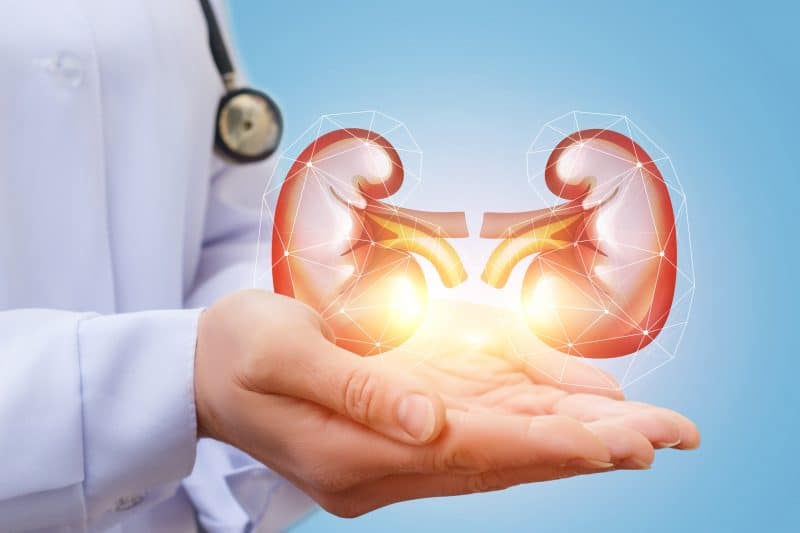Chronic Kidney Disease (CKD) is degenerative condition where there is gradual loss of kidney function. The primary function of kidney is to filter blood and to remove waste (toxins), excess salt and water in the form of urine. However, over time other conditions such as blood pressure and diabetes can weaken kidney and reduce the function of kidney to remove waste and water from the blood. Depending on the cause of kidney damage it can be diagnosed as follows:
- Glomerulonephritis – where the glomeruli is damaged which is responsible for filtration.
- Polycystic kidney disease – this is genetic which is caused due to formation of many fluid-filled cysts that grow in kidney which eventually reduces the ability of kidney function.
- Hypertensive nephrosclerosis – where the main cause is chronic uncontrolled hypertension.
- Membranous nephropathy – which is caused due to various auto immune conditions which attacks the filtering membranes of kidney.
- Kidney stones – obstruction urinary track, enlarged prostate or even cancer.
- Vesicourethral reflux – condition in which urine flow backward from ureters to kidney.
- Nephrotic syndrome – condition in which various factors can cause damage to kidney.
- Pyelonephrities – repeated infection in kidney.
- Diabetic nephropathy – damage of one or more nerves because of diabetes which can cause tingling, muscle weakness, numbness and chronic pain.
In the initial stages there are no symptoms. But the common ones are:
- Frequent Urination
- Drowsiness, tiredness, itchiness, numbness
- Nausea or vomiting
- Loss of appetite
- Cramps in muscle
- Darkness of skin
- Swelling of hands and feet
Commonly, blood investigations such as Serum Creatinine which tells well the kidney is functioning to remove the waste products from our body. Serum Creation along with other age-related factors helps us to estimate the glomerular filtration rate (GFR).
Again, as many diseases there is no cure for CKD but can be managed by delaying the progression of the disease. There are medication which helps us to delay the progression but the underlying conditions such as blood pressure and diabetes has to monitored carefully. Patients with CKD should avoid taking any pain killers and smoking. The treatment option for a person with end stage CKD is dialysis or Kidney transplantation.
The other treatment option is Regenerative medicine or Stem Cell therapy for chronic kidney disease (CKD) which is a non-invasive method which aims to improve the quality of life of a patient. Stem cell therapy has no long-term side effects. This targets to reduce the inflammation in the body which allows the cells to regenerate in a much better rate. There are plenty of studies and clinical trials which have shown stem cells have the ability to regenerate damaged tissues, decrease the inflammation and modulate the immune system. This happens because of the paracrine effect of mesenchymal stem cells which can migrate to the site of tissue damage and get transformed into functional cells and replaces the damaged ones.
The potential use of stem cells can result in reduced inflammation, improved organ function, increased energy levels, improvements in sleep, hair and skin quality. Regenerative medicine has proven to be the key to prolong human life.

